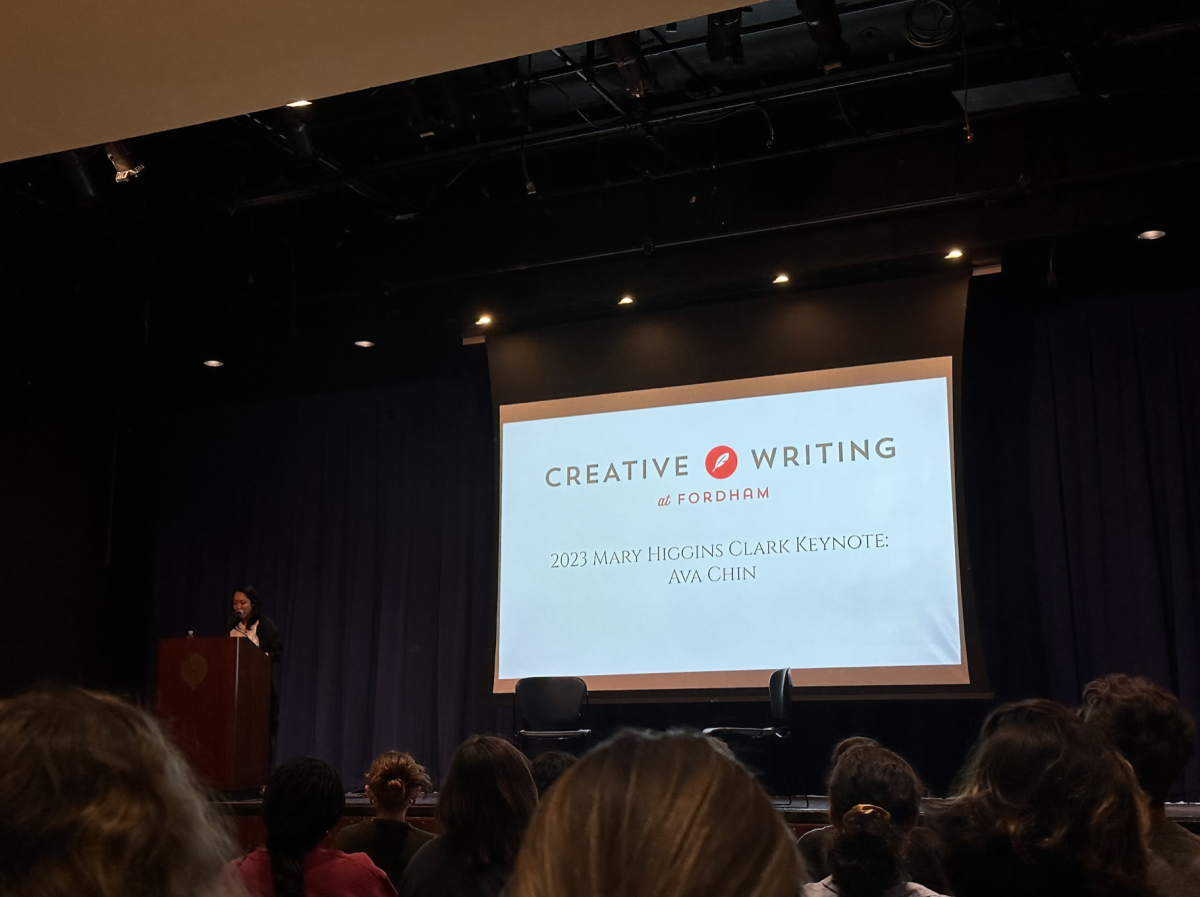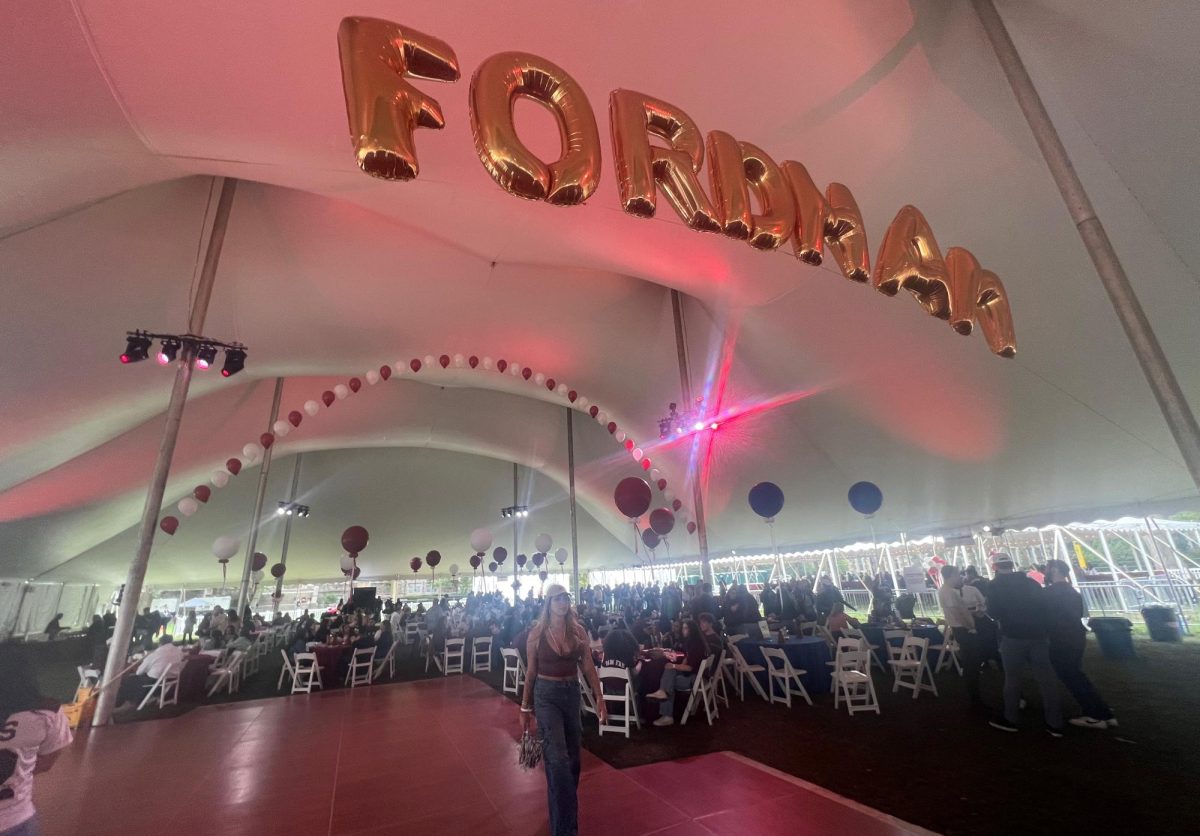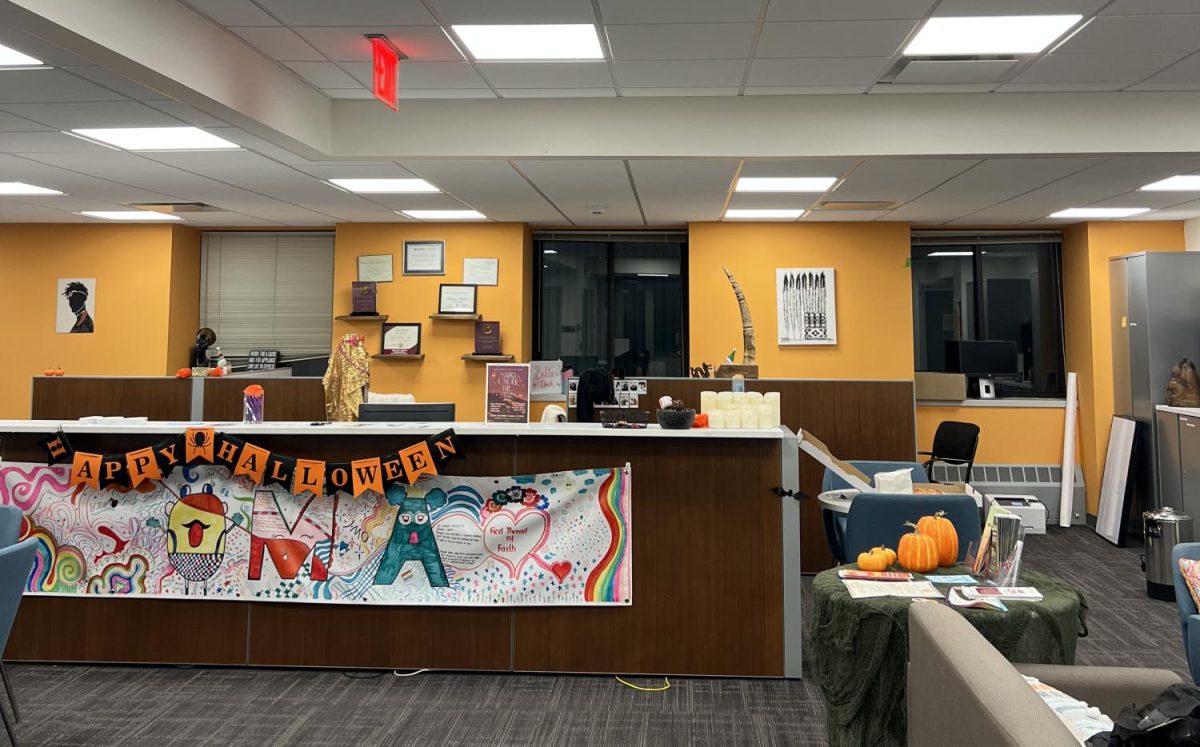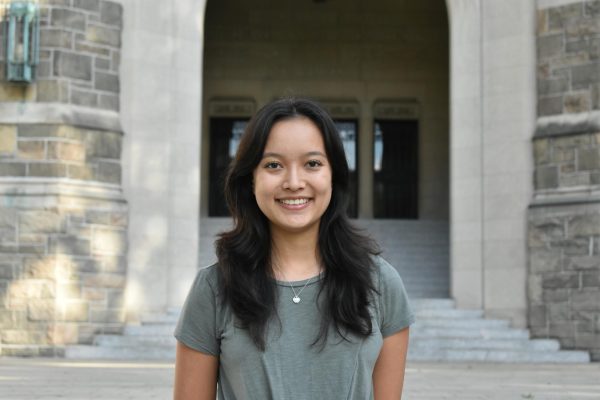On Wednesday, Oct. 18, the Fordham English department hosted their annual Mary Higgins Clark Chair Event, this year co-sponsored by Fordham’s new Asian American Studies program. The keynote speaker was Ava Chin, and the event focused on her new novel “Mott Street: A Chinese American Family’s Story of Exclusion & Homecoming.”
“Ava Chin’s book is really almost a new genre that she’s created herself. It’s a family history and a personal history and the history of Chinese exclusion in America, and the history of Mott Street in Chinatown — all brought together in a sort of wonderfully creative, fascinating mix,” said Mary Bly, chair of the English department.
Bly explained that Mary Higgins Clark’s request — that the speakers are not always just writing straight literary fiction — is what has allowed the English department to expand past a singular genre this year and in years past.
Higgins Clark, an FCLC alumna and New York Times-bestselling author, donated a million dollars for the Mary Higgins Clark Chair to aid Fordham’s creative writing department, provide scholarships for students and make the keynote speaker event happen.
“Ava Chin’s reading is precisely the kind of event that is the epitome of the programming that Asian American Studies supports,” said Stephen Sohn, co-director of the Asian American Studies program. “Her incredible archival research, her exploration of the Chinese American experience over multiple generations, as well as her keen understanding of the racializing aspects that made life so difficult for Chinese Americans in New York City, make ‘Mott Street’ a monumental publication for those that study Asian American culture and history.”
Sarah Gambito, the director of creative writing, introduced Chin, who started by reading an excerpt from her novel. Chin grew up in Flushing, Queens, but both sides of her family had deep roots and history in Chinatown on Mott Street.
“Spend time with the people who raised you and ask them questions,” said Chin when explaining how to write a family history, and how she started to write hers.
Chin shared that she faced three main fears while writing: fear of rejection, fear of writing the story and fear of actually publishing the book. Since she had a complicated relationship with the paternal side of her family, it caused the fear of rejection to be heightened even more for her.
While looking into her past during her 20s, she discovered that both sides of her family lived in the same building on Mott Street, but hated each other. This complicated the story even more. On top of family complications, Chin explained the legislation and racism at the time that she was asking people about made it hard to find people willing to talk.
“Who was I?” Chin repeated multiple times after explaining all the roadblocks. Chin ended up leaving New York for graduate school and leaving the story behind. When she came back to teach as a professor in New York, she learned new details about her family history that gave her a frame to create a story, and she made a commitment to the book.
“Once you have committed to the story, that is when it’s time to buckle up your seatbelt and enjoy the ride,” Chin said.
During the Q&A portion of the event, Chin talked about staying dedicated to her writing and how some of her fears did come to fruition but said it was important to stay present and understand what you are feeling and realize it is valid. In addition, she gave advice to students on how to create a story.
“The best stories take something really large, some massive thing happening in society but look at it through the lens of ordinary people and individual lives,” Chin said.
When asked how she chooses what genre to write in, Chin explained that “when a story falls into [her] lap, it is the story that dictates the genre.”
Overall, Bly said she hoped that students learn something about Chinatown and the history of Chinese exclusion in America, but even further, they are inspired and energized by seeing someone who created their own genre.
“Lots of people in that audience will have really interesting personal stories of their own that interlock with American history in important ways, different ways… Everybody has stories that come from different places… And those stories need to get out, and I’m hoping this is a way of inspiring people to say, you know, ‘maybe later in life, I’m going to do something like this,’” Bly said.











































































































































































































